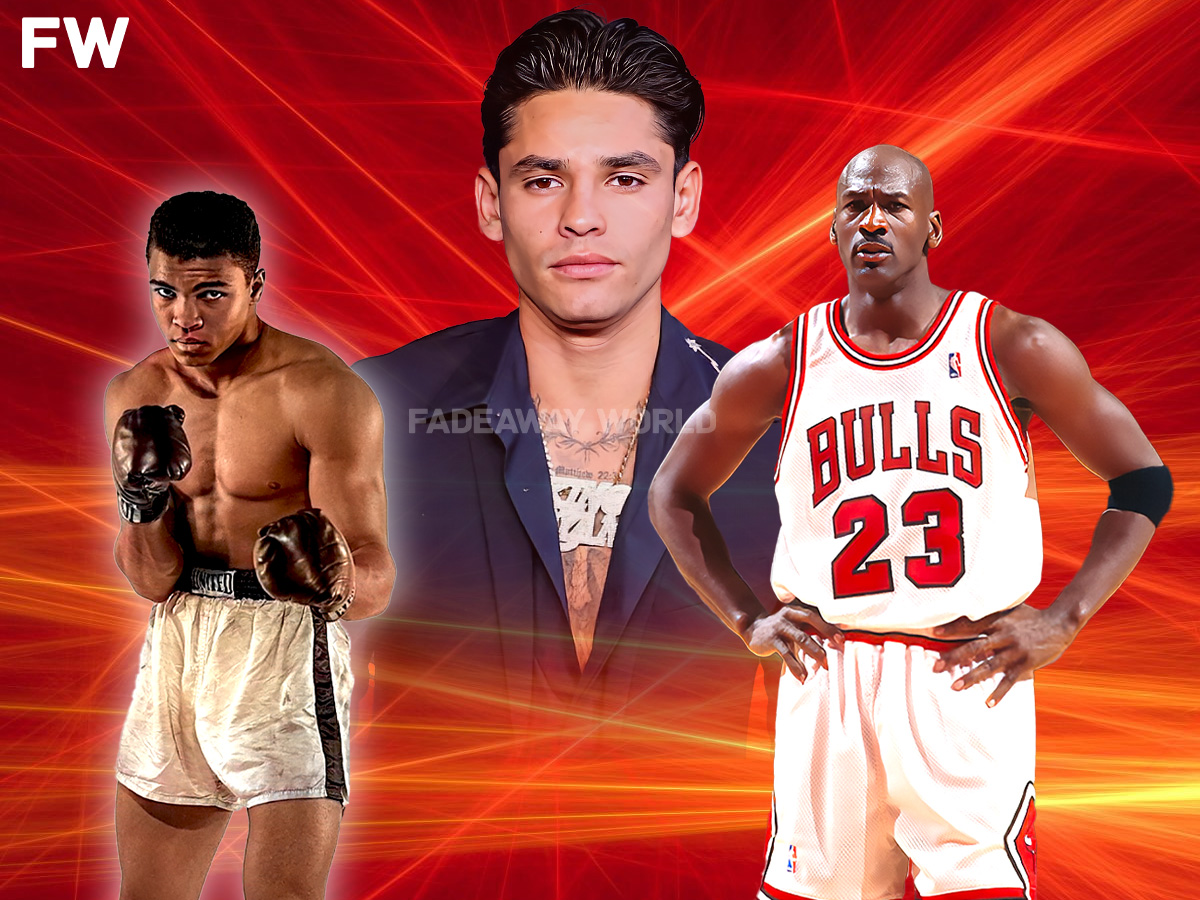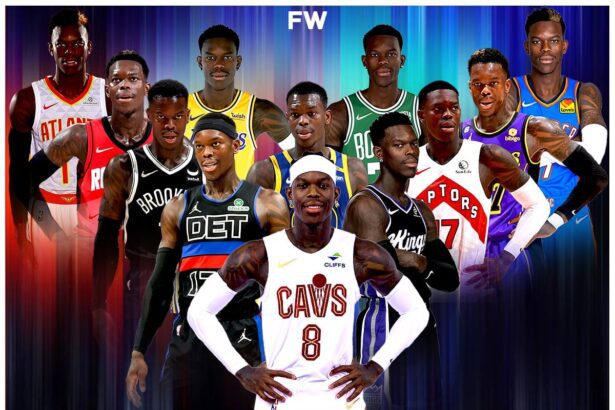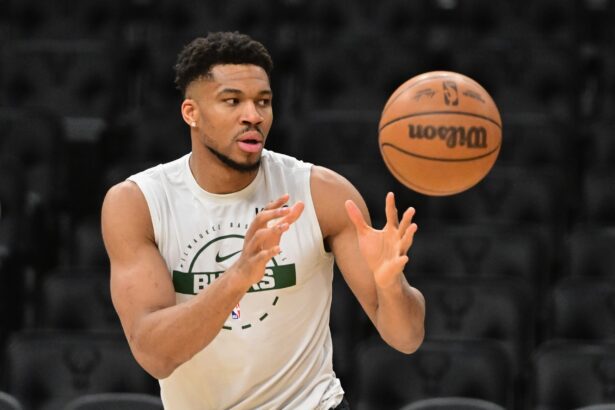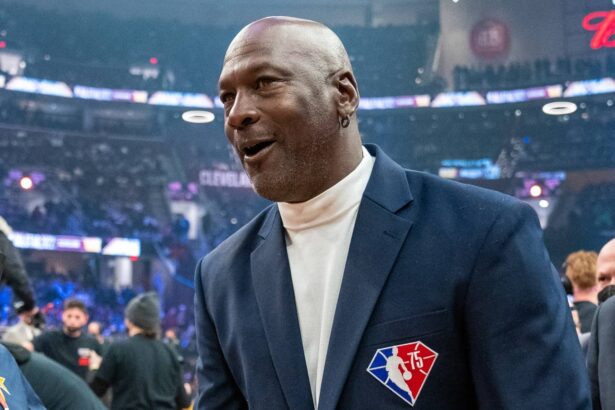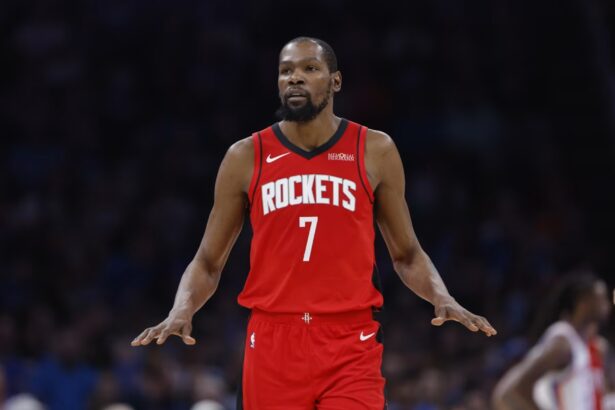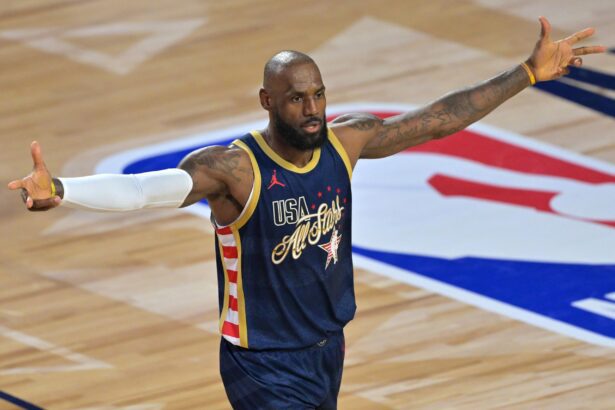In a recent appearance on the “Shopping for Sneakers” podcast by Kick Game, professional boxer Ryan Garcia stirred up a significant debate about who deserves the title of the greatest athlete of all time.
“Muhammad Ali. No, Jordan didn’t do s**t for the people. Jordan made some shoes. I don’t give a f**k about no six rings, I give a f**k about what you did outside the court.”
“What did you do outside the court bro? I like Kobe better than him.”
“My dad’s from Chicago, my dad loves Jordan. I met Jordan, he’s cool.” (9:43)
When asked about his choice, Garcia unequivocally selected Muhammad Ali over basketball legend Michael Jordan. He didn’t just stop at praising Ali; he also criticized Jordan for what he perceived as a lack of contribution off the basketball court.
Garcia argued that while Jordan’s six NBA championships and iconic status in sports are undeniable, these achievements don’t necessarily translate into broader societal contributions.
Garcia highlighted Ali’s impact beyond boxing, emphasizing that Ali’s activism and efforts for social justice made him stand out not just as an athlete, but as a figure who genuinely worked for the betterment of society. According to Garcia, Jordan’s legacy, despite his monumental success in basketball and the cultural influence of his Air Jordan sneakers, falls short in this regard.
Garcia’s viewpoint is rooted in the belief that an athlete’s greatness should be measured not only by their performance and accolades within their sport but also by their actions and influence outside of it.
He believes that while Jordan excelled in basketball, his contributions to societal issues were not as significant as those of Ali. This perspective was met with mixed reactions, as many hold Jordan in high regard not just for his athletic prowess but also for his role in popularizing basketball globally and influencing popular culture.
Despite his criticisms, Garcia did acknowledge his personal respect for Jordan, noting his father’s admiration for the basketball star and his own positive interaction with Jordan. However, his overall stance was clear: in his view, Ali’s impact as a social activist and champion of human rights elevates him above Jordan in the pantheon of great athletes.
This discussion underscores a broader debate about how to define the greatest athlete. For some, it is about the number of titles and records. For others, like Garcia, it is equally important to consider how athletes use their platform and influence to effect positive change in society.
This nuanced view challenges fans and commentators to look beyond the stats and trophies when evaluating an athlete’s true legacy.
Michael Jordan To Take Fight Towards Racism
In a 1993 interview with Australian television, NBA legend Michael Jordan opened up about how Muhammad Ali’s legacy profoundly influenced his own views and actions regarding racism. Jordan, who grew up in Wilmington, North Carolina, faced significant racial challenges from a young age.
The town was marked by the presence of white supremacist groups like the Ku Klux Klan, and racial tensions permeated his everyday life, affecting everything from his schoolbooks to sports gear.
As a teenager, Jordan experienced firsthand the sting of racism. An incident where a classmate used a racial slur against him led to a physical confrontation, which resulted in Jordan being suspended. This incident was one of many that shaped his understanding of the deep-seated racism in his community.
Despite these challenges, Jordan found inspiration in Muhammad Ali, the heavyweight boxing champion known not only for his prowess in the ring but also for his outspoken stance on social issues and racial equality. Ali’s ability to transcend racial barriers and be recognized for his character and achievements, rather than his skin color, left a lasting impression on Jordan.
In the interview, Jordan explained how Ali’s example helped him to see beyond the racial prejudices that plagued his community. Ali’s wisdom and courage in the face of adversity provided Jordan with a blueprint for his own efforts to combat racism. Jordan aspired to be viewed not just as a black man, but as a person with the same dignity and rights as anyone else.
Jordan’s reflections reveal how Ali’s legacy extended beyond sports, inspiring future generations to continue the fight against racism and strive for equality. Ali’s impact on Jordan underscores the importance of role models who use their platforms to advocate for social justice, showing that sports figures can play a crucial role in challenging and changing societal norms.
Thank you for being a valued reader of Fadeaway World. If you liked this article, please consider following us on Google News. We really appreciate your support.

